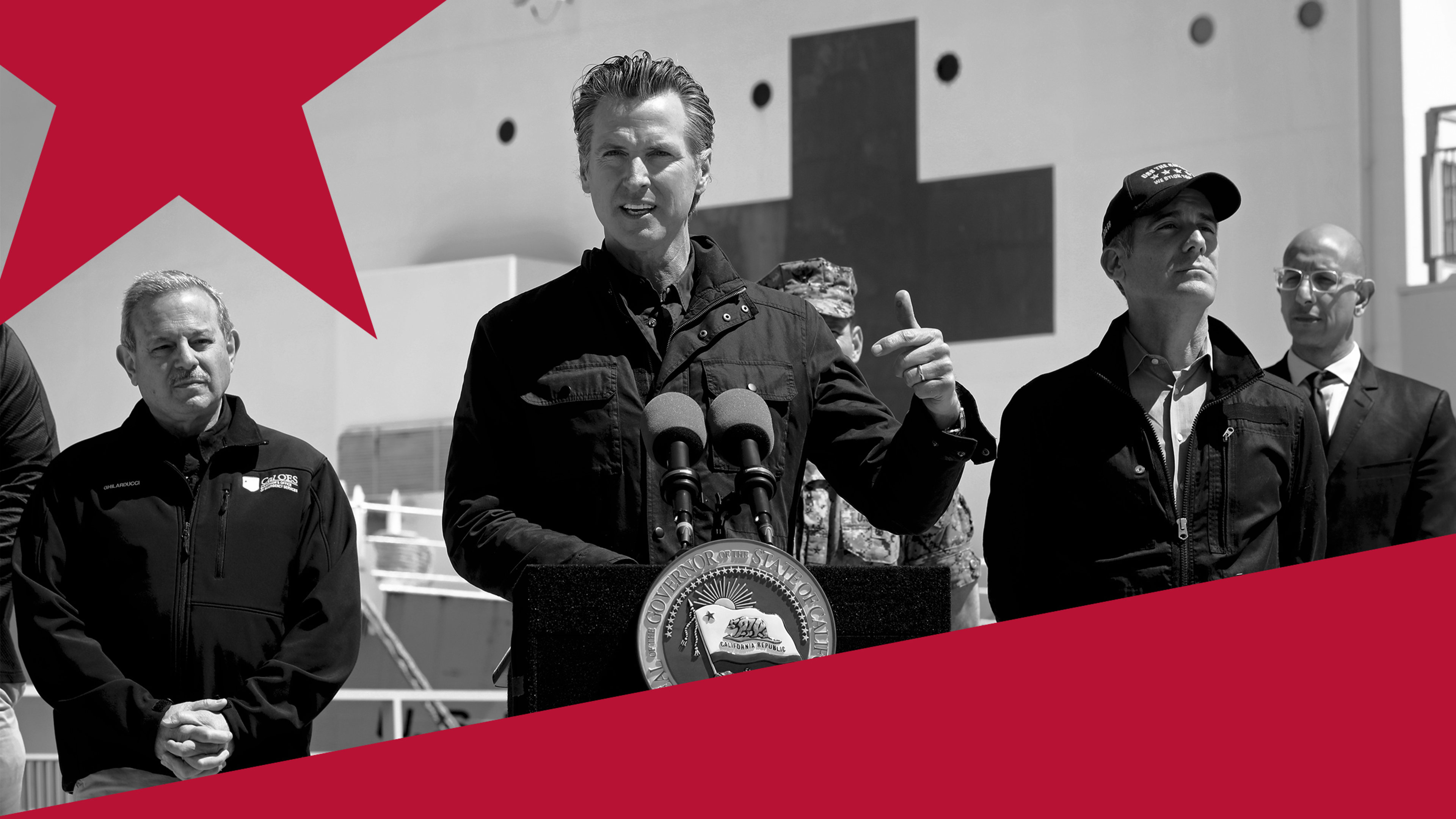Many Americans started receiving their economic relief payments from the IRS yesterday. But there’s one group of taxpayers that did not, and will not, receive any cash from the federal government: undocumented immigrants.
California governor Gavin Newsom sought to address some of that inequity with an announcement yesterday that his administration would give “direct disaster assistance” checks totaling $125 million to 150,000 of the state’s undocumented immigrant population, which numbers an estimated 2 million people. These individuals paid approximately $2.5 billion in state and local taxes last year.
Check amounts would begin at $500 per person, which Newsom admits is not enough to solve the economic disaster people are currently facing. “I’m not here to suggest that $125 million is enough,” he said in a broadcast announcement Wednesday, “but I am here to suggest that it’s a good start, and I am very proud that it is starting here in the state of California.”
The bundle of money to be distributed will be made up of $75 million of Californian taxpayers’ funds, in addition to $50 million from a network of nonprofit charities, including the Emerson Collective, the James Irvine Foundation, and the Chan Zuckerberg Foundation, which are already in the process of fundraising for this joint effort.
Newsom stressed that many undocumented people are front line workers, in the healthcare, agricultural, food, and manufacturing industries, who have little choice but to put themselves at risk of contracting the coronavirus. They also live in continual fear of deportation, which is especially worrisome during a pandemic, when many are afraid to visit health centers because of anxiety about being identified and reported.
“We feel a deep sense of gratitude for people that are in fear of deportation but are still addressing the essential needs of tens of millions of Californians,” the governor said.
California Gov. Gavin Newsom announced his state will be the first to give cash to immigrants living in the country illegally who are hurt by the coronavirus. https://t.co/ZIqKkFfJf5 pic.twitter.com/6QIJTTMbJ0
— ABC News (@ABC) April 16, 2020
Because of the fear that contacting the government could lead to immigration troubles, the state won’t directly issue checks; rather, it will give the funds to a range of nonprofit organizations that support immigrants and have built up trust with families. These groups will be responsible for choosing the 150,000 workers who’ll receive the checks, via a vetting process. Potential recipients will not be means-tested.
While these nonprofit groups praised the governor’s move, political opponents spoke out. The Republican state senate majority leader, Shannon Grove, said Newsom should be focusing on raising aid for food banks, distance education, hospitals, and small businesses. “Instead of meeting these urgent needs,” she said, “Governor Newsom has chosen to irresponsibly pursue a left-wing path and unilaterally secured $125 million for undocumented immigrants.”
Still, Newsom emphasized California’s commitment to these communities, which he said represent 10% of the state’s entire workforce, and one of the few groups being excluded from the federal government’s $1,200 relief fund.
“Regardless of status, documented or undocumented, there are people in need,” he said. “This is a state that steps up, always, to support those in need.”
Recognize your brand’s excellence by applying to this year’s Brands That Matter Awards before the early-rate deadline, May 3.
